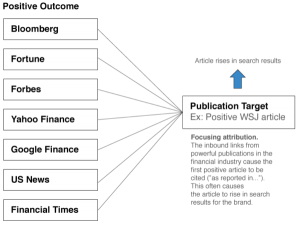Life is busy. It seems the more we work to get ahead, the further behind we can fall at times.
In a previous career stop, I used a very effective model to help myself and my coworkers better evaluate where time is well spent. After all, if you simply chase whatever has your attention, where will that get you?
The model itself was something I referred to as my “Urgent vs. Important” continuum. What does that mean?
Well, life is filled with urgent needs. Most of us get hundreds of emails a day. Social Media notifications keep sounding off to pull you onto Facebook, Twitter, or whatever platform you like most. The phone rings randomly, asking for who-knows-how-much of your time. People walk into your office in a panic. The potential distractions that come across as “urgent” can number in the dozens, can’t they?
But how important are all of those urgent distractions? Will life fall apart if you look at someone’s Facebook comment in a few hours? Do you really need to answer emails within five minutes of receiving them?
Of course not! If we really operate in “real time,” when in the world will we actually get anything done? It pays to step back and consider the longer term, more strategic and important issues facing us on a daily basis.
This post is just that. It calls out some issues further out over the horizon that we will need to address sooner or later.
10 SEO Questions to Consider in 2016
I chose a questions format specifically to get you off the dime. You’ll need to answer them for your own particular situation and website. But they are important enough to keep in mind this year.
1. Is my website running fast enough to keep users engaged?
Any good SEO will tell you that website performance is a huge factor in getting ranked. In fact, it pays to spend time and money to ensure your page load time is as fast as it can be.
Why is this important? User engagement. If your website loads too slowly, users will give up and go elsewhere. Your bounce rate will increase. And Google won’t rank you as highly in the SERPs if your performance stinks.
This is even more of an issue on mobile. The same page will typically load even slower on a smartphone or tablet than it will on a desktop. And users are more impatient, meaning that you are truly leaving traffic off the table by ignoring performance.
There are several ways to know if your website is too slow. You can have a speed test run, check Google Search Console for the average load time, or get an SEO professional to analyze it for you. I recommend the latter if you want to be sure you do it right and get professional assistance to fix anything they find.
2. What can I do to better improve the content on my website?
How’s the state of your website content? Have you even looked at it since you originally launched the site itself?
You could find a range of issues. Perhaps the jargon used is old hat. Or maybe you quote statistics and sources that are now dated. Heck, the nature of your services may have evolved and need a better description.
And then there’s the ongoing content to consider. Do you blog regularly? Are you running out of ideas? What other topics could you target to widen the net and capture more organic traffic?
Content should be reviewed on a regular basis and adjusted accordingly. If you aren’t benefiting immensely from your content, take a step back and think about what you could be doing better. There are always improvement areas worth considering.
3. Do I need outside assistance to get my SEO right?
As any good consultant will tell you, DIY SEO is a tradeoff between time, money, and quality.
You can throw a ton of time at it and maybe get it right, saving time. However, will the quality be first or second rate?
How long will it take you to learn everything you need to know? Can you realistically do that while running your core business? Maybe if the business is based on SEO 100%, but what are the opportunity costs to DIYing it?
Don’t skimp on your own SEO. It’s a growing asset that can provide exponentially more value if done right. If you really want to benefit the most, allocate budget to bring in outside assistance. Then spend your own time working on other areas where you can add more value for each hour spent. You’ll thank me for that advice later.
4. Are the links pointing to my site of the highest quality?
While technical and on page SEO are important for getting a site into Google’s index, backlinks to your website are the most important factor for getting yourself on page 1 for target keywords. If you want to rank, you need links.
But too many people cheat on links, so now Google penalizes cheaters. Even websites who didn’t cheat can get hit as collateral damage, so it is on each of us to ensure our link profile is of the utmost quality.
Have you ever done a link audit to see if there are spammy links? You might be surprised what you would find. Businesses who have previously paid an SEO to rank their site are high risk in this area.
But it’s not only those folks. Even companies who have never hired an SEO firm can somehow find themselves with spammy links. Maybe it’s from companies who are trying to hide client links among a large number of them when link spamming. Maybe a competitor targeted you for negative SEO to move you down the SERP below them. There could be any of a number of reasons for spammy links pointing to your site.
Every website needs to be on top of this. It pays to do a regular review if you want to keep your rankings intact. If you don’t know how to do it, again, bring in an outside SEO expert to help.
5. Do I have any issues with website errors?
Website errors are very bad for the health of your technical SEO. There are a range of error types, with the most common being a 404 (page not found) or one of the errors in the 500-599 range (typically a server response problem or similar, meaning the browser asks for a website and the server responds slowly or not at all).
If you have any errors, you can find out about them in your Google Search Console. They need immediate attention. 404 errors can be fixed with 301 redirects. If you are dealing with any 500 errors, bring in a developer or web pro to help sort it out. These concerns can cause you to tumble in the SERPs in short order.
6. How is my online reputation holding up?
What do you see when you search for your own brand name? Hopefully, the first result is your own website. But what is second, third, and all the way down the organic rankings?
While it may seem out of reach, it is wholly possible to control the state of your online reputation proactively.
Do you see negative reviews or news about your business? That happens a lot, and there are ways to push them down.
Are there companies with very similar names clogging up your SERP? That can also be fixed.
No matter what you do about it, be sure you have a handle on the state of your online reputation. It could literally be costing you visits and customers if you let it slide.
7. Is the mobile UX for my website of the highest caliber?
Mobile SEO is no longer an option. With Google’s release of what the industry referred to as Mobilegeddon in April 2015, mobile became a must-have for anyone who depends on organic traffic for success (i.e. everyone).
Have you built a responsive website? Have you run it through Google’s mobile friendly testing tool? If the answer is “no” on either question, you are dealing with a problem that is both urgent AND important. It needs immediate attention.
8. Am I ready for the next iteration of Google Penguin?
I mentioned how important links are above, as well as Google Penguin itself. But there’s another thing to be aware of – Google is about to fold the entire Penguin algorithm in to their main ranking algorithm.
What does this mean? We likely won’t see manual penalties for link cheating any more. We’ll just see decreased traffic when links are subpar.
This is another huge reason to get your links in order (April 01, 2016). If you haven’t suffered from Google Penguin yet, you might find yourself in a real pickle when they finally decide to go wide with it.
9. Is my website set up properly to target the Knowledge Graph?
Have you ever noticed that Google now uses the knowledge graph to give you faster access to information right on the SERP? If you want to get in on that game, you need to use semantic markup on your website.
Semantic markup helps Google understand entities, like products, people, locations, etc. Without it, the search engine has to guess what your real name, address, phone number, products, and more are.
Websites with the right markup are more likely to find themselves benefiting from Google quick answers and sidebar knowledge graph boxes. It can’t hurt to do it, so why not get it rolled out at your earliest convenience?
To learn more about semantic markup, check out schema.org.
10. What are my long term SEO goals?
Everyone wants “free” traffic, i.e. organic or SEO-driven visits. That’s great. But SEO is not a quick fix.
What do you want to get from that traffic? Have you thought about how to convert them to leads and business?
SEO for SEO’s sake is a waste of time and money. You need to think ahead to what you want to get from it. Set yourself goals, be they overall rate of organic traffic growth, volume of conversions to your list, and even closed business from it.
This is not a quick exercise if you do it right. Really think through the goals, and use those goals to drive decisions on day-to-day activities. You will find that looking out into the future can have a massive impact on things you choose to do today. Know why you are doing them, and go make it happen.
Summary
Everyone knows they need SEO, but it often becomes just one of many important things that keep falling off the priority list. Rather than just treading water, take time to study up on how to swim. You’ll find that the results are exponentially better when you balance the important SEO things with the day-to-day urgent execution tasks.
Digital & Social Articles on Business 2 Community(21)
Report Post






